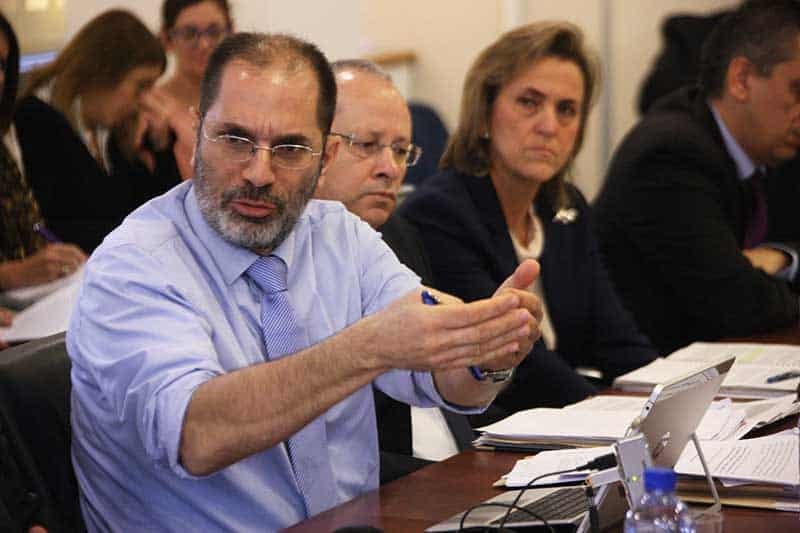On his own initiative, Auditor-General Odysseas Michaelides on Thursday published online his earnings for 2022 – apparently trolling the attorney-general and the deputy attorney-general who a day earlier decided they would not disclose their assets and would instead ‘self-regulate’.
Michaelides posted a link on his X (formerly Twitter) account with a brief summary of his earnings for 2022. It showed income of €125,208 relating to his profession, plus another €3,840 in income from rent. He paid €20,412 in flat-rate contributions, and €23,641 in income tax.
The text of the tweet read: “The audit office clearly stands for transparency when it comes to the assets and earnings of state officials. Beyond the ‘pothen esches’ [capital statement] which by law is published, it also voluntarily publishes on an annual basis full data relating to earnings.”
It was a clear dig at AG Giorgos Savvides and deputy AG Savvas Angelides, who a day earlier informed parliament that they would not publish their capital statements.
The matter came up at the House ethics committee on Wednesday, where MPs were debating a bill amending the law governing capital statements.
Capital statements are filed by MPs, Politically Exposed Persons (PEPs), ministers, and the president, and they are meant to show the income and properties and business interests of the person. The statements are then published online.
The discussion turned to the AG and the deputy AG who are not designated as PEPs as they are appointed, but also independent, state officials. The auditor-general is also an appointed and independent state official.
A letter from deputy AG Angelides was read out which said that both he and his boss Savvides would not publish their capital statements. But as a goodwill gesture, they would from now on file their capital statements to the president of the Supreme Constitutional Court.
The capital statements of the AG and his deputy would be kept in an archive maintained at the Supreme Constitutional Court. The court could also query the two officials about their capital statements.
However – and this was the key part – the capital statements of the AG and the deputy AG would not be made public.
In justifying their decision to self-regulate, the two officials argued that publishing their capital statements would not serve transparency, and on the contrary would subject them to “unwarranted” scrutiny and to potentially malicious misinformation about their wealth.
They further said that they do not need to disclose their assets and earnings because they are not PEPs, and because they “serve an independent institution that is insulated from political influence.”
The letter did not go down well with some MPs. Akel’s Irini Charalambidou was particularly scathing, saying that the AG and deputy AG were avoiding scrutiny by “looking for loopholes.”
The MP suggested the two officials think they are above the law.
As for their contention that their office is corruption-proof, Charalambidou recalled the case of former deputy AG Rikkos Erotokitou, who in 2017 was found guilty of abuse of power and bribery and sentenced to three-and-a-half years in jail.







Click here to change your cookie preferences